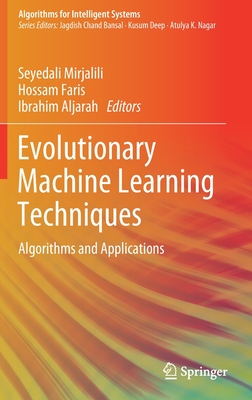相關主題
商品描述
1.1 Context and motivation
1.2 Characteristics of IoT topology
1.3 Attack modes against network topology
1.4 Book organization
Chapter 2 Preliminaries of robustness optimization
2.1 Metrics of topology robustness
2.2 Related work
2.3 Existing challanges
Chapter 3 Robustness optimization based on self-organization3.1 Path planning based on the greedy principle
3.2 Construction of highly robust topology
3.3 Robust time synchronization scheme
Chapter 4 Evolution-based robustness optimization4.1 Robustness optimization scheme with multi-population co-evolution
4.2 An adaptive robustness evolution algorithm with self-competition
Chapter 5 Robustness optimization based on swarm intelligence
5.1 Topology optimization strategy with ant colony algorithm
5.2 Topology optimization strategy with particle swarm algorithm
Chapter 6 Robustness optimization based on multi-objective cooperation
6.1 Multi-objective optimization based on layered-cooperation
Chapter 7 Robustness optimization based on self-learning
7.1 Malicious node identification scheme based on gaussian mixture model
7.2 Highly robust topology learning model based on neural network
7.3 Highly robust topology generation strategy based on time series convolutional network
Chapter 8 Robustness optimization based on node self-learning
8.1 Node self-learning mechanism based on reinforcement learning
Chapter 9 Future research directions
9.1 Homogeneous networks
9.2 Heterogeneous networks
9.3 Smart IoT
商品描述(中文翻譯)
第1章 介紹
1.1 背景與動機
1.2 物聯網拓撲的特徵
1.3 對網路拓撲的攻擊模式
1.4 書籍組織
第2章 穩健性優化的初步知識
2.1 拓撲穩健性的度量
2.2 相關工作
2.3 現有挑戰
第3章 基於自我組織的穩健性優化
3.1 基於貪婪原則的路徑規劃
3.2 高度穩健拓撲的構建
3.3 穩健的時間同步方案
第4章 基於演化的穩健性優化
4.1 具有多種族群共同演化的穩健性優化方案
4.2 一種具有自我競爭的自適應穩健性演化演算法
第5章 基於群體智慧的穩健性優化
5.1 基於螞蟻群演算法的拓撲優化策略
5.2 基於粒子群演算法的拓撲優化策略
第6章 基於多目標合作的穩健性優化
6.1 基於分層合作的多目標優化
第7章 基於自我學習的穩健性優化
7.1 基於高斯混合模型的惡意節點識別方案
7.2 基於神經網路的高度穩健拓撲學習模型
7.3 基於時間序列卷積網路的高度穩健拓撲生成策略
第8章 基於節點自我學習的穩健性優化
8.1 基於強化學習的節點自我學習機制
第9章 未來研究方向
9.1 同質網路
9.2 異質網路
9.3 智慧物聯網
作者簡介
Dr. Tie Qiu is currently a full professor in the School of Computer Science and Technology at Tianjin University, China. Prior to this, he was an assistant professor and associate professor in the School of Software at Dalian University of Technology. He was a visiting professor in the Department of Electrical and Computer Engineering at Iowa State University in the USA (2014-2015). He serves as an associate editor of IEEE Transactions on Network Science and Engineering (TNSE) and IEEE Transactions on Systems, Man, and Cybernetics: Systems; area editor of Ad Hoc Networks (Elsevier); associate editor of Computers and Electrical Engineering (Elsevier) and Human-centric Computing and Information Sciences (Springer); and guest editor of Future Generation Computer Systems. He serves as general chair, program chair, workshop chair, publicity chair, publication chair, and TPC member of a number of international conferences. He has authored/co-authored 9 books and over 150 scientific papers in international journals and conference proceedings, such as IEEE/ACM Transactions on Networking, IEEE Transactions on Mobile Computing, IEEE Transactions on Knowledge and Data Engineering, IEEE Transactions on Industrial Informatics, IEEE Communications Surveys & Tutorials, IEEE Communications, INFOCOM, and GLOBECOM. His 10 papers are listed as ESI highly cited papers. He has contributed to the development of 4 copyrighted software systems and holds 16 patents. He is a distinguished member of the China Computer Federation (CCF) and a senior member of IEEE and ACM.
Ning Chen is a PhD candidate at Tianjin University. His research focuses on the Internet of Things, including robustness optimization, wireless sensor networks, artificial intelligence, big data analysis, smart city, and Internet of Vehicles. He has published more than 10 papers in leading journals, including two ESI highly cited papers.
Mr. Songwei Zhang is currently a technical engineer at Tianjin University. He has extensive experience in the robustness optimization of Internet of Things topology.
作者簡介(中文翻譯)
田秋博士目前是中國天津大學計算機科學與技術學院的正教授。在此之前,他曾擔任大連理工大學軟件學院的助理教授和副教授。他於2014年至2015年間擔任美國愛荷華州立大學電氣與計算機工程系的訪問教授。他擔任《IEEE網絡科學與工程學報》(IEEE Transactions on Network Science and Engineering, TNSE)和《IEEE系統、人類與控制論:系統學報》(IEEE Transactions on Systems, Man, and Cybernetics: Systems)的副編輯;《Ad Hoc Networks》(Elsevier)的區域編輯;《計算機與電氣工程》(Computers and Electrical Engineering, Elsevier)和《以人為中心的計算與信息科學》(Human-centric Computing and Information Sciences, Springer)的副編輯;以及《未來一代計算機系統》(Future Generation Computer Systems)的客座編輯。他擔任多個國際會議的總主席、程序主席、研討會主席、宣傳主席、出版主席和技術程序委員會成員。他已經撰寫或合著了9本書籍和超過150篇國際期刊及會議論文,包括IEEE/ACM網絡通訊學報、IEEE移動計算學報、IEEE知識與數據工程學報、IEEE工業信息學學報、IEEE通訊調查與教程、IEEE通訊、INFOCOM和GLOBECOM。他的10篇論文被列為ESI高被引論文。他參與了4個著作權軟件系統的開發,並擁有16項專利。他是中國計算機學會(CCF)的傑出會員,以及IEEE和ACM的資深會員。
陳寧是天津大學的博士候選人。他的研究重點是物聯網,包括穩健性優化、無線傳感器網絡、人工智慧、大數據分析、智慧城市和車聯網。他在領先的期刊上發表了超過10篇論文,其中包括兩篇ESI高被引論文。
張松偉先生目前是天津大學的技術工程師。他在物聯網拓撲的穩健性優化方面擁有豐富的經驗。












